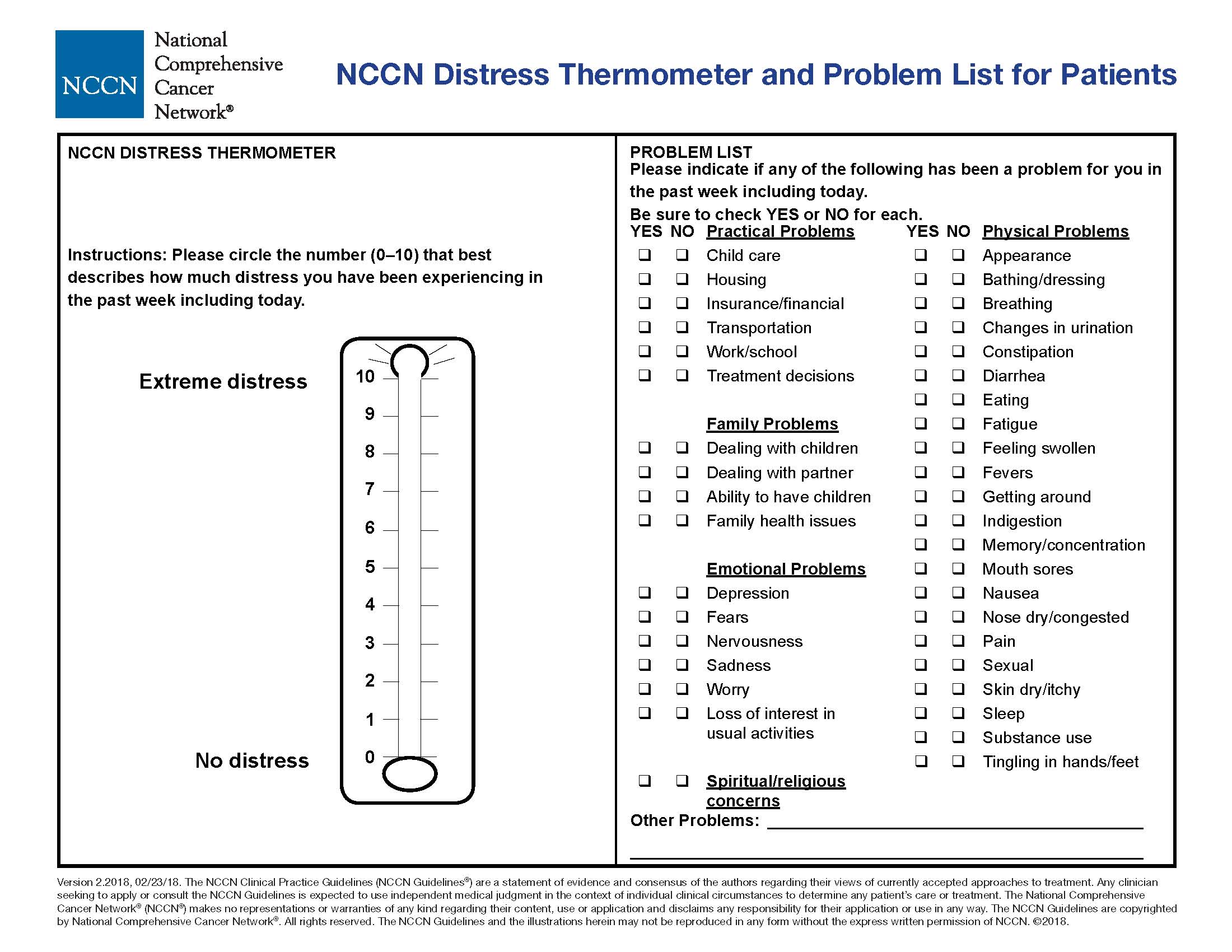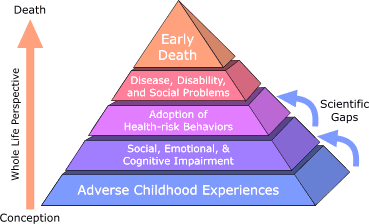-1-1.jpg?width=630&name=mom_daughter_generations_AdobeStock_85059587%20(2)-1-1.jpg)
How Prolonged Stress and Inner Conflicts Contribute to the Illness Process
As part of the Integrative Cancer program at NIHA, we look for any inner conflict and any prolonged stress a person may have because we know it may result in profound changes in the physical body of the person.
You may have heard about the new science of “Epigenetics" which studies how our environment and our beliefs modulate what our body cells “print out." The now popular ACEs Study (Adverse Childhood Experiences) describes the deep influences childhood trauma can have on the later development of adult illness and wellness of a person.
Emotional trauma usually happens in relationship. Someone has hurt you, was neglectful, abused or abandoned you. (It is not the car that hurt you in an accident but the distracted driver.) Internal conflicts can derive from trauma from childhood (“developmental trauma", often called “childhood wounds”) or they can come from unresolved conflicts that are coming from current life situations such as your job, family, relationships, money, loss, loneliness, chronic illness, accidents, and even inherited conflict from our ancestors.
If the recent ACEs Study (Adverse Childhood Experiences Study by Kaiser Permanente & CDC) is correct, then conflicts and distress that are coming from an early parent-child relationship cause predictable, measurable, and long-lasting damages to the health of the person later in life.
The Distress Thermometer
The "DISTRESS THERMOMETER" (1) chart helps evaluate the many situations in life that could have been traumatic for you. It does not take much to cause concern about lasting trauma and its effects throughout one's lifespan.

The NCCN recommends those scoring ≥4 be referred to a mental health care professional for further evaluation.
Because trauma usually comes from a faulty relationship, it follows, then, that profound healing can only happen IN A RELATIONSHIP.
Psychotherapy is a relational, person-to-person encounter. It is a soul-to-soul process that aims to re-visit and heal those traumatic experiences in an environment of positive regard, deep connection, trust, truth, understanding, and personal validation.
The process of self-awareness, self-examination and re-adjustment is best done with the help of an “empathic other”. Psychotherapy, Psychosomatic Medicine, Mind-Body Medicine, and any other form of similar behavioral health counseling are methods to help a person to tap into the unconscious blockages a person may have and to separate their current-time experiences from past experiences in order to facilitate emotional healing. Each of these approaches will help the client to be able to be more responsive and less reactive i.e., being “present in the moment” vs. “defending against one’s traumatic past."
From a Change in Perception to Bodily Change
Our reactions are often based on “old programs” from our childhood. But, they are not relevant any longer. Acknowledging what is going on in the moment and letting go of old mental programs or outdated defensive patterns and limiting beliefs is in itself healing and a powerful form of de-stressing.
The ACEs PYRAMID represents the conceptual framework for the ACE Study

Chart from Wikipedia
Note the gradual progression of dis-ease process starting with an Adverse Childhood Experience over one’s lifespan.
Because the body-mind reacts immediately, specifically, non-consciously and directly to a shift of consciousness and how you feel about a situation, or your perception, you may see physical changes and improvements once you resolve your inner conflicts and distortions following a “change of mind”.
Emotions and Cancer
However, many patients have learned to hold-in their emotions – especially anger.
It has been noted by many sources that cancer patients have great difficulty expressing certain deeper emotions. In fact, one of the indicators of positive treatment progress is that these patients become more assertive and self-advocating.
Here lays some of the strengths of body-based (“somatic”) psychotherapy, because we are trained to welcome deep emotions. We also offer powerful tools to “ground” and safely “release” deep vulnerability such as love, longing, helplessness, powerlessness, hopelessness, and to embrace both our fear of being totally alive and our fear of death.
The Integrative Cancer Program at NIHA offers health counseling, individual psychotherapy and group counseling sessions, including Psycho-kinesiology (PK) sessions to help you “change your mind” so that your body can relax and receive the healing it needs.
Viewed from an integrative and holistic perspective, the emotional well-being component is a very important part of cancer treatment as supportive therapy and healing of the mind, body and spirit to improve outcome and quality of life.
There is a way of seeing any illness as an opportunity for personal growth and spiritual transformation. Looking at it in this way, cancer becomes a teacher - and even a friend.
1 Reproduced with permission from the NCCN Clinical Practice Guidelines in Oncology (NCCN Guidelines®) for Distress Management V.2.2018. © 2018 National Comprehensive Cancer Network, Inc. All rights reserved. The NCCN Guidelines® and illustrations herein may not be reproduced in any form for any purpose without the express written permission of NCCN. To view the most recent and complete version of the NCCN Guidelines, go online to NCCN.org. The NCCN Guidelines are a work in progress that may be refined as often as new significant data becomes available.
 Kuno Bachbauer LMFT, Graduated from University of Vienna Medical School in 1978. Unsatisfied with the scope of traditional medicine, he soon focused on exploring various personal growth methods that included both the body and spirituality. Kuno is a holistic psychotherapist and is certified in Core Energetics Evolutionary Process and on the Senior Faculty of the Institute of Core Energetics East, N.Y. Part of the Integrative Cancer Program at NIHA, he is regarded as an innovative, creative and dynamic teacher and a compassionate therapist.
Kuno Bachbauer LMFT, Graduated from University of Vienna Medical School in 1978. Unsatisfied with the scope of traditional medicine, he soon focused on exploring various personal growth methods that included both the body and spirituality. Kuno is a holistic psychotherapist and is certified in Core Energetics Evolutionary Process and on the Senior Faculty of the Institute of Core Energetics East, N.Y. Part of the Integrative Cancer Program at NIHA, he is regarded as an innovative, creative and dynamic teacher and a compassionate therapist.
.png?width=305&height=132&name=NIHAlogoBLUE_3_transparent%20(2).png)
